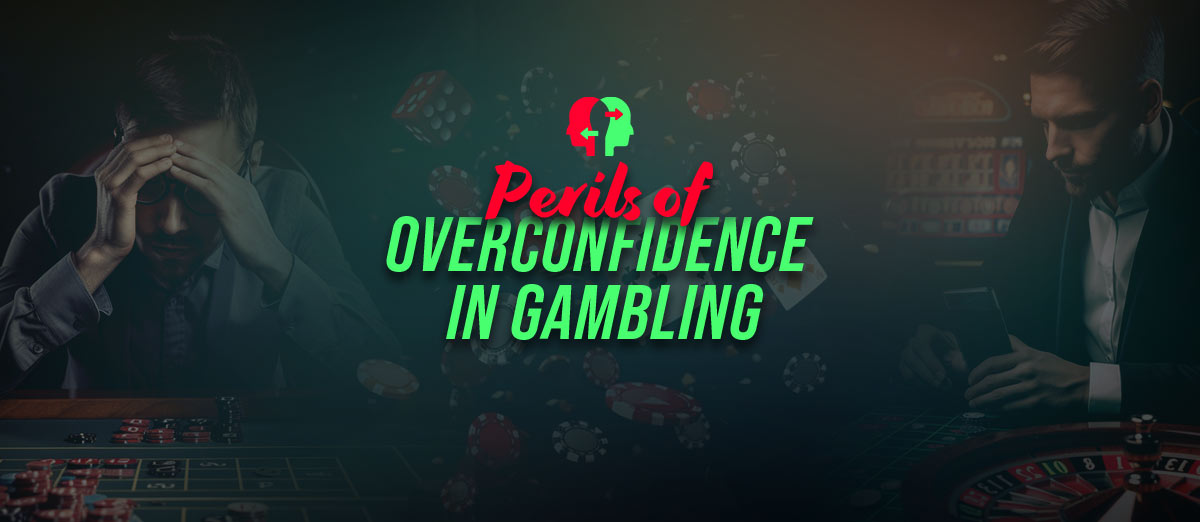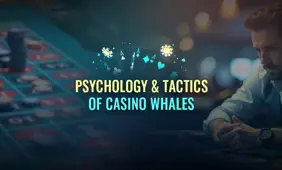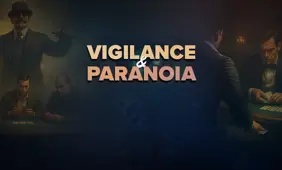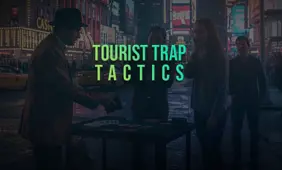R. Paul Wilson On: The Dangers of Ego When Gambling

When gambling on any type of game or investment opportunity, there’s a powerful psychological enemy that’s always working against us; a proven element at the heart of all successful con games, a key factor in serious gaming losses and the downfall of many unsuccessful advantage players.
About thirty years ago, a friend of mine was touring the United States of America giving lectures to fellow magicians, teaching methods for new tricks and demonstrating sleight of hand intended for conjuring and cheating. His reputation as a sleight-of-hand expert was deserved but while he could demonstrate cheating moves, his actual experiences as a hustler were nonexistent.
This lack of experience didn’t stop him from presenting the image of a reformed crooked gambler and most magicians quickly accepted that he must have been a professional cardsharp when they saw him dealing from the bottom of the deck in the context of a demonstration or card trick.
But eventually, this pretended ability to play for real would cost him a small fortune.
Self-Deception and the Price of Overconfidence
One dusty, sunbaked afternoon, Justin (not his real name) arrived in a Midwest town where he would later present a lecture for a small club of amateur magicians, and when two of those local conjurors met him at the train station, Justin immediately asked where the nearest pool hall was.
His hosts took him to a shady joint above a sketchy bar on the outskirts of town where Justin marched in with great confidence, giving the impression that he was obviously a good player looking for a little action.
The place was deserted.
Justin proceeded to tell his new friends that the local guys must have heard he was coming and therefore taken the day off to avoid facing him. When a waitress appeared, he asked why the pool hall was empty, and she explained there was a tournament in another town and everyone was over there, but Justin acted like this was just another excuse, bragging about his reputation and supposed skill.
After a few minutes of this, the waitress decided she had enough of his bullshit and removed her apron, ordering Justin to “RACK ‘EM!” Three games later, Justin was back on the street, substantially poorer after the waitress had easily cleaned out his cash and his reputation.
Knowing Justin well, I had no doubt this story was true and have heard it from one of the two guys who picked him up. I also heard that on another occasion, Justin lost money to a gambler who said he could cheat all he wanted but would forfeit if the gambler caught him making any moves, which he did every time!
In those days, Justin was something of a Walter Mitty character but also a comedian who couldn’t resist the opportunity to spin a story whether true or not but when it comes to actually gambling or playing, he seems to have made a career out of losing large amounts of money to his own worst enemy: his ego.
A sucker’s ego is a con artist's best friend and can easily be manipulated with the right story once that con artist knows what their victim wants. For players, it can be the cause of many downfalls and is often the reason so many players (even famous gamblers) lose more than they intended (or imagined). I’ve seen many examples of players falling for their own inflated opinion of their meagre abilities only to crash and burn at blackjack, craps or poker.
Human Nature and Role of Ego in Games of Chance
One of the reasons I believe counting cards should be allowed by major brick-and-mortar casinos is that most people are terrible at it and are a much bigger danger to themselves than to the house. For every dollar lost to an expert or team of advantage players, many more can be won from hopeful losers who simply don’t (or won’t) put in the work to make a system profitable.
It’s a common belief amongst gaming experts that more millions have been lost to slowing down the game of blackjack in a failed attempt to prevent card counting than has ever been won by players, and if they simply kept the games moving and backed off the most dangerous counters, the industry would have even more of our money!
Gambling games naturally create conditions that make it easy for players to make mistakes, become overly-confident or easily manipulated into betting more than they should while losing more than they can afford.
Whether you’re operating an effective playing strategy or attempting to be an advantage player, cold consistency is often short-circuited by human nature, and it’s easy to stray from a mathematical path into hopeful (but dangerous) territory, and our egos can be our own worst enemy as we try to reclaim losses or double downwards.
Even when we win, our ego can make us abandon the best strategy in hopes of another lucky strike and the worst thing that might happen is that we get what we wished for and sow the seeds of future disaster. Think how many first-time gamblers get lucky and then spend the rest of their lives losing as they chase that initial rush of endorphins.
The Pitfalls of Overestimating Abilities
Many players who over-estimate their ability have no problem risking way more than they should on an over-inflated assessment of skill or chance. When this happens, they don’t need a con artist to empty their wallets because the game is structured and presented in a way that allows them to throw their own money away once they fail to manage playing decisions or emotional reactions.
Learning better ways to play can definitely lead to long-term improvements in profits while short-term failures based on emotion and human nature can easily turn those profits upside down. Any poker player honest enough to analyze their losses will agree that despite many hours of disciplined play their entire stack can be quickly lost with a rash of foolish decisions.
Games of chance can and do offer opportunities for smart players to improve their odds but when those odds are still against you, the numbers will always revert to the house but will do so a lot faster if we over-estimate our own ability to play.
Just like our friend Justin in that Midwest pool hall, we often hustle ourselves into situations we might have avoided had we properly assessed our odds, concentrated on the best available options and stepped away or backed off our bets whenever our chips are down.
In my next article, we’ll take stock of how to manage money and strategies and playing schedules to outsmart the many factors designed to keep us from losing in the long run.





Review this Blog
Leave a Comment
User Comments
comments for R. Paul Wilson On: The Dangers of Ego When Gambling